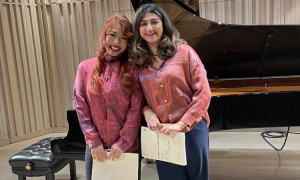Innovation in UTI diagnostics wins international prize
The Longitude Prize is a British innovation prize first offered in 1714 to solve the problem of measuring longitude at sea.
Sysmex Astrego received the $10.2 million award to incentivize the development of transformative point-of-care tests that will improve antibiotic treatment decisions.
The prize-winning instrument will be exhibited in the museum alongside John Harrison’s chronometer and Alexander Fleming’s penicillin mold from 1928.
“This is fantastic recognition for this technology and it’s particularly pleasing that it’s such a good example of how basic research can lead to tangible benefits,” says Johan Elf, Professor of Physical Biology.
Elf’s research group has long used microscopy and microfluidics to study bacteria. The methods were further developed in 2015 when doctoral student Özden Baltekin began studying growth variations between individual bacterial cells and the underlying molecular mechanisms.
The first test, which is for urinary tract infection, radically changes the healthcare situation. After just 15 minutes, the test shows whether it is a bacterial infection and in less than 45 minutes, which type of antibiotics can be used. Previous tests for antibiotic sensitivity needed to be analyzed in hospital laboratories with a waiting time of 2-3 days.









